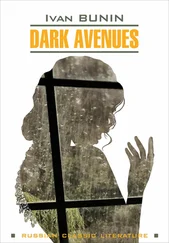The Lord has never visited those parts either by Egyptian or ordinary plagues. No one of the inhabitants has ever seen or remembered any terrible heavenly signs, fiery balls, or sudden darkness; there are no poisonous snakes there; locusts do not come; there are no roaring lions, nor growling tigers, nor even bears nor wolves, because there are no forests. Only ruminating cows, bleating sheep, and cackling hens walk about the villages and fields in vast numbers.
It is hard to say whether a poet or a dreamer would have been pleased with nature in this peaceful spot. These gentlemen, as everyone knows, love to gaze at the moon and listen to the song of the nightingale. They love the coquette-moon when she dresses up in amber clouds and peeps mysteriously through the branches or flings sheaves of silvery beams into the eyes of her admirers. But in that country no one has even heard of the moon being anything but an ordinary moon. It stares very good- naturedly at the villages and the fields, looking very like a polished brass basin. The poet would have looked at her in vain with eyes of rapture; she gazes as good-naturedly at a poet as does a round-faced village beauty in response to the eloquent and passionate glances of a city philanderer.
There are no nightingales in those parts, either – perhaps because there are no shady nooks and roses there. But what an abundance of quail! At harvest time in the summer boys catch them with their hands. Do not imagine, however, that quail are regarded there as a gastronomic luxury – no, the morals of the inhabitants had not been corrupted to that extent: a quail is a bird which is not mentioned in the dietary rules. In that part of the country it delights the ear with its singing; that is why almost every house has a quail in a string cage under the roof.
The poet and dreamer would have remained dissatisfied by the general appearance of that modest and unpretentious district. They would never have succeeded in seeing an evening in the Swiss or Scottish style, when the whole of nature – the woods, the river, the cottage walls, and the sandy hills – is suffused by the red glow of the sunset, against which is set off a cavalcade of gentlemen, riding on a twisting, sandy road after having escorted a lady on a trip to some gloomy ruin and now returning at a smart pace to a strong castle, where an ancient native would tell them a story about the Wars of the Roses and where, after a supper of wild goat’s meat, a young girl would sing them a ballad to the accompaniment of a lute – scenes with which the pen of Walter Scott has so richly filled our imagination. No, there is nothing like that in our part of the country.
How quiet and sleepy everything is in the three or four villages which compose this little plot of land! They lie close to one another and look as though they had been flung down accidentally by a giant’s hand and scattered about in different directions, where they had remained to this day. One cottage, dropped on the edge of a ravine, has remained hanging there since time immemorial, half of it suspended in the air and propped up by three poles. People have lived quietly and happily there for three or four generations. One would think that a hen would be afraid to go into it, and yet Onisim Suslov, a steady man, who is too big to stand up in his own cottage, lives there with his wife. Not everyone would be able to enter Onisim’s cottage, unless, indeed, the visitor persuaded it to stand with its back to the forest and its front to him. For its front steps hang over the ravine, and in order to enter it one has to hold on to the grass with one hand and its roof with the other, and then lift one’s foot and place it firmly on the steps.
Another cottage clings precariously to the hillside like a swallow’s nest; three other cottages have been thrown together accidentally not far away, and two more stand at the very bottom of the ravine.
Everything in the village is quiet and sleepy: the doors of the silent cottages are wide open; not a soul is to be seen; only the flies swarm in clouds and buzz in the stuffy air. On entering a cottage, you will call in vain in a loud voice: dead silence will be your answer; very seldom will some old woman, who is spending her remaining years on the stove, reply with a painful sigh or a sepulchral cough; or a three-year-old child, long-haired, barefoot, and with only a torn shirt on, will appear from behind a partition, stare at you in silence, and hide himself again.
In the fields, too, peace and a profound silence reign; only here and there a ploughman can be seen stirring like an ant on the black earth – and, scorched by the heat and bathed in perspiration, pitching his plough forward. The same imperturbable peace and quiet prevail among the people of that locality. No robberies, murders, or fatal accidents ever happened there; no strong passions or daring enterprises ever agitated them. And, indeed, what passions or daring enterprises could have agitated them? Everyone there knew what he was capable of. The inhabitants of those villages lived far from other people. The nearest villages and the district town were twenty and twenty-five miles away. At a certain time the peasants carted their com to the nearest landing-stage of the Volga, which was their Colchis or Pillars of Hercules, and some of them went to the market once a year, and that was all the intercourse they had with the outside world. Their interests were centred upon themselves and they never came into contact with or ran foul of any one else’s. They knew that the administrative city of the province was sixty miles away, but very few of them ever went there; they also knew that farther away in the same direction was Saratov or Nizhny-Novgorod; they had heard of Petersburg and Moscow, and that French and Germans lived beyond Petersburg, and the world farther away was for them as mysterious as it was for the ancients – unknown countries, inhabited by monsters, people with two heads, giants; farther away still there was darkness, and at the end of it all was the fish which held the world on its back. And as their part of the country was hardly ever visited by travellers, they had no opportunity of learning the latest news of what was going on in the world: the peasants who supplied them with their wooden vessels lived within fifteen miles of their villages and were as ignorant as they. There was nothing even with which they could compare their way of living and find out in this way whether they lived well or no, whether they were rich or poor, or whether there was anything others had that they, too, would like.
These lucky people imagined that everything was as it should be and were convinced that everyone else lived like them and to live otherwise was a sin. They would not believe it if someone told them that there were people who had other ways of ploughing, sowing, harvesting, and selling. What passions and excitements could they possibly have? Like everyone else, they had their worries and weaknesses, rent and taxes, idleness and sleep; but all this did not amount to a great deal and did not stir their blood. For the last five years not one of the several hundred peasants of that locality had died a natural, let alone a violent, death. And when someone had gone to his eternal sleep either from old age or from some chronic illness, the people there had gone on marvelling at such an extraordinary event for months. And yet it did not surprise them at all that, for instance, Taras the blacksmith had nearly steamed himself to death in his mud hut so that he had to be revived with cold water. The only crime that was greatly prevalent was the theft of peas, carrots, and turnips from the kitchen gardens, and on one occasion two sucking pigs and a chicken had suddenly disappeared – an event which outraged the whole neighbourhood and was unanimously attributed to the fact that carts with wooden wares had passed through the village on their way to the fair. But, generally speaking, accidents of any kind were extremely rare.
Читать дальше












